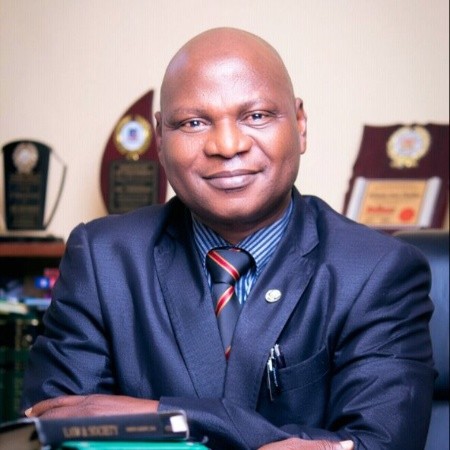Ado-Ekiti, Nigeria — Professor Sesan Fabamise, a distinguished Professor of International Law at Afe Babalola University, has expressed dissatisfaction with the Tinubu administration’s decision to construct a new INEC Annex Office and expand the INEC Headquarters, describing the move as ill-timed amid Nigeria’s escalating insecurity, widespread hunger, and deepening economic hardship.
Speaking exclusively with New Daily Prime, Professor Fabamise described the development as a “symbol of misplaced priorities” during a time when millions of Nigerians are grappling with worsening living conditions.
“It is unfortunate that our politicians are not sincere,” he said. “Look at what’s recently happening in Benue State. Despite the devastating attacks that have claimed many lives, the state government still encouraged people to come out en masse to welcome the President. That visit should have been a moment of national mourning, not celebration. It shows just how disconnected the government is from the people’s reality.”
The professor further criticised the administration’s neglect of critical infrastructure, especially in rural areas. He pointed to the dilapidated condition of the Aramoko–Eyiyoro–Ado road in Ekiti State, which he said has become so impassable that travellers now avoid it entirely.
“Even the roads already contracted remain untouched. People now take longer detours through Ilawe just to reach Igbaraoke. It’s a clear sign of the government’s insensitivity to the everyday struggles of its citizens,” he added.
Politics of Poverty and “Stomach Infrastructure”
Professor Fabamise traced the root of Nigeria’s governance issues to what he called the “politics of poverty” and a form of grassroots manipulation commonly referred to in local parlance as “dibo ko sebe”—a Yoruba phrase that roughly translates to “vote and cook your own soup.”
“This idea of ‘stomach infrastructure’ has overtaken our democratic process,” he said. “People are conditioned to expect food or cash during elections. Politicians hand out ₦5,000 or ₦10,000, and people vote not out of conviction, but because they are desperate. Poverty has become a deliberate political tool.”
According to Fabamise, this cycle of transactional politics stunts national development and keeps citizens disengaged from demanding long-term solutions.
Education Under Threat
The academic also raised alarms over an emerging trend where education is being discredited, particularly among young Nigerians. He blamed this on political elites who, he claims, deliberately propagate the narrative that “education is a scam.”
Read Also:
Education key to curbing crime- Akpabio
Education minister advocates extending NYSC to two years
Ogun govt partners with Morocco on energy, infrastructure, education
“They understand that education is power. It opens minds. So, after plunging people into poverty, they now try to delegitimise education to keep them docile and dependent,” he warned.
Even in the face of high graduate unemployment, Fabamise insists that education remains the cornerstone of progress and emancipation.
“Education must never be undermined. It may not yield instant jobs, but when opportunities arise, it’s the educated who will be prepared to seize them. The idea that “education is a scam” is a dangerous lie peddled by those who benefit from widespread ignorance.”
The Path Forward: Mass Civic Reawakening
To break this cycle, Professor Fabamise advocates for widespread political and civic education.
“We must educate our people—not only in classrooms but politically. Voters need to understand their rights and the long-term consequences of trading them for momentary gain. Until we do, the system will remain broken.”
His comments come at a time when Nigeria faces severe criticism both domestically and internationally for deteriorating economic indicators, growing youth unemployment, insecurity, and a perceived erosion of democratic values.
As President Tinubu’s administration presses ahead with legacy projects like the INEC buildings, voices like Professor Fabamise’s are growing louder—calling for a realignment of government priorities with the actual needs of Nigeria’s citizens.



